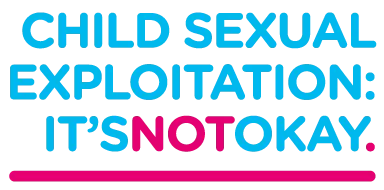Online Safety and Sexting
Thinking about ‘sexting’?
You may have been tempted in the past to send naked pictures or videos of yourself, perhaps to a friend’s mobile, on a web cam, or on social media.
Some people call this “sexting”, “cybersex” or “sending a nudie”. This makes it sound exciting and fun. It can feel really private too.
But sexting is never private. All images can be saved or ‘screengrabbed’ by the person receiving it – even if you think you are using a private network or a temporary message app like Snapchat.
Once a photo is shared online, you have lost all control of it and it will be virtually impossible for you undo. Even if you change your mind and delete the photo you uploaded, other people may have already shared or copied the image. This puts you at risk of abuse or exploitation by others.
Know who your friends are…
Sending videos or pictures of yourself to people you don’t know is dangerous. Unfortunately, any communication with people you don’t know is dangerous.
Sometimes abusers will pretend to be your age. You may think you are sexting with people you think are your friends and people you can trust.
The truth is, anyone you send a photo to can take advantage of you for doing it – even people you know in real life, including so-called ‘friends’ in your year group.
Abusers will flirt with you. Flatter you. Make you feel really special – all in an effort to earn your trust and make you think they are your friend. They will start conversations with you about sex and convince you it’s good to talk to them about it too. If you’re feeling down or unloved, they will boost your self-esteem and try to earn your trust.
But the truth is you can’t trust them. They are exploiting you and abusing you, but before you realise this, it may be too late.
But it won’t happen to me….
Yes, it might.
There were more than 1,200 ChildLine counseling sessions that mentioned ‘sexting’ last year.
And Greater Manchester Police have told us of many distressing cases where a young person has shared a sexual image of themselves with someone they thought they could trust. That person has then saved the image and used it to blackmail and exploit the victim into sending them more images, demanding money from them, bullying them, demanding they perform sexual acts for them – this is exploitation and it is extremely traumatic for the victim.
Sadly, most young people do not see a problem with sexting and it is becoming normal behavior for children to share indecent images or content.
Even if you think you can trust the person you are sexting with, you have no idea what they are doing with the photos or videos you send them, or who else is looking at them.
I can’t get into trouble though can I?
Although it may be very common, sexting can be illegal.
If you are under 18 and you take part in sexting by creating an explicit photo of yourself, you have potentially *created* an indecent image of a child. If you send the image to someone else, you have then *distributed* an indecent image of a child. If you are the one receiving the image, you are then in *possession* of an indecent image of a child.
This is all against the law.
Sending or sharing indecent images of anyone who is under 18 – or keeping an image someone sends you – is a serious crime. You risk being arrested and going to court. This is the case even if the person sharing the image with you is happy to do so or you are happy to send nude selfies to someone else.
Help is available!
When things go wrong online, many young people are afraid, embarrassed or ashamed to tell someone in case they have their phones taken off them or they are wrongly judged. This only allows the abuse to continue.
But the good news is that help is available. If something does go wrong online, don’t suffer in silence. It’s not your fault. If you’re too embarrassed to tell your mum or dad, or you’re worried you will get in trouble, you can:
- Talk to a trusted adult
- Talk to your local specialist CSE team
- Contact ChildLine online or on 0800 1111
Be safe online
When you are online on your phone, tablet, games console, or computer, always remember that there are people who will use the technology to exploit and abuse you. Make sure you are aware of the dangers, and know how to keep safe online.
Always be wary of people you don’t know who try to make friends with you on social networks, games sites or instant messaging apps. There’s no guarantee they are who they say they are and you should never tell them anything personal about yourself.
There are some really useful links below which can give you further advice and help if you are being exploited or think you know someone else that is.
- ThinkUKnow – sex, relationships and the internet. Three things that get a little bit complicated.
- ChildLine – online and mobile safety advice
- Report it to CEOP – has someone made you feel weird or uncomfortable online? Report it!
- ChildLine – online grooming
- Stay safe onscreen – how to use webcams safely
- What is sexting? (ChildLine)
- What is sexting? (Childnet)
Getting images of yourself removed from the internet
If you’re worried that you’ve shared images of yourself that you shouldn’t, or you want to get an indecent image of yourself removed from the internet, you can get help from ChildLine. They can contact the Internet Watch Foundation on your behalf.
ZipIt
Is someone asking you for sexual images? Download ChildLine’s free Zipit app. It gives you loads of comebacks and put-downs to use.
Share with others:






